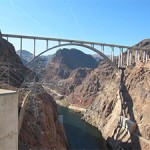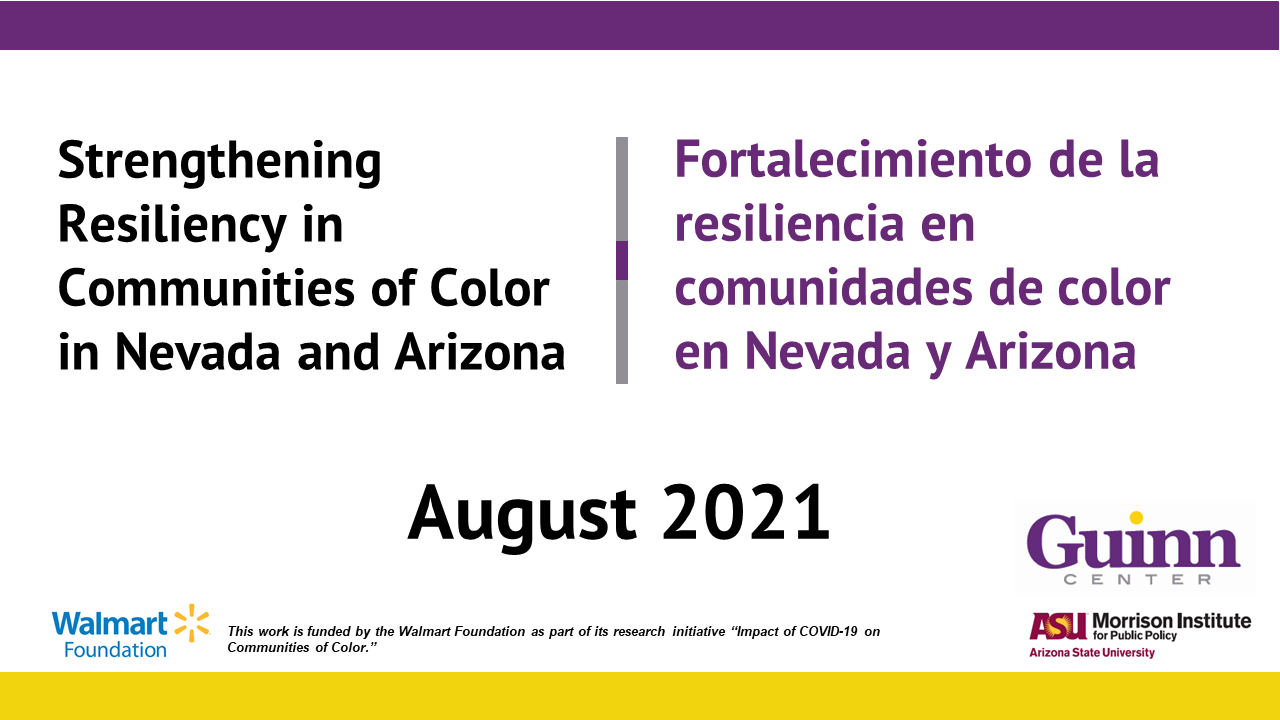Environment and Climate

Nevada enjoys beautiful landscapes and diverse topographies complete with valleys, basins, and mountains. While rich in minerals and metals, Nevada faces significant water security challenges. Additionally, rapid population growth in the last decade has overwhelmed our infrastructure and ability to deliver public services. The Guinn Center recognizes that over time, natural resource challenges and sustainability issues can affect the state’s long-term economic growth trajectory.
Sustaining Nevada Data and Resources
Areas of research:

- Natural resources (energy, water)
- Water security
- Infrastructure
- Sustainability
- Climate
- Extreme Heat
- Disaster Preparedness and Response
Services:
- Data collection and analysis
- Policy development
- Focus group and facilitation
- Survey design and analysis
- Grant writing
Policy Reports and Research
Strengthening Resilience of Communities of Color in Nevada and Arizona
The Guinn Center, in partnership with Morrison Institute at Arizona State University, is examining the impact of extreme heat during COVID-19 on Latino and Native American communities in Nevada and Arizona. Specifically, our teams are asking: What heat-related challenges did COVID-19 expose or exacerbate? What policies help address these challenges What are the gaps? How can policy help reduce negative impacts? This project is funded by the Walmart Foundation.
As part of this project, our team conducted over 50 interviews with community leaders and members and designed and administered a survey.
Our final report will be released in August 2021.
Restructuring the Electricity Market in Nevada? Possibilities, Prospects, and Pitfalls
The subject of Question 3: The Energy Choice Initiative—namely the proposed restructuring of Nevada’s electricity markets—is complex. Supporters and opponents of Question 3: The Energy Choice Initiative are providing data and arguments that appear to conflict with each other. This policy report summarizes and evaluates the primary arguments for and against passage of Question 3. While the Guinn Center does not take a position on Question 3, we seek to inform the debate so that decision-makers, ratepayers, and voters better understand the issue. Given that the evidence we reviewed is comparative and historical, rather than predictive, we cannot demonstrate conclusively that energy choice (Question 3) is either “good” or “bad” for Nevada. That can be known only with the wisdom of hindsight. The Guinn Center notes, however, that the transition to a restructured (or “energy choice”) electricity market in other states was characterized by variability in rate behavior, implementation challenges, and, for residential ratepayers, increased uncertainty resulting from greater exposure to wholesale electric prices.
See here for Executive Summary: Guinn Center Q3 Ex Summary

